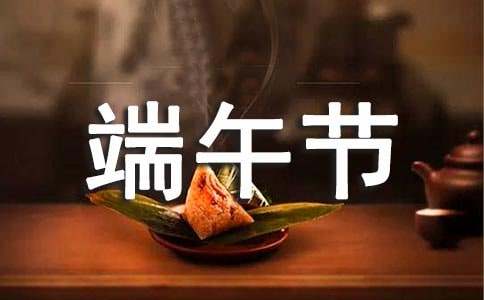高三關(guān)于端午節(jié)英語(yǔ)作文帶翻譯
農(nóng)歷五月初五為端午節(jié),又稱端陽(yáng)節(jié)、午日節(jié)、五月節(jié)、艾節(jié)、端五、重午、午日、夏節(jié)。 為大家分享了端午節(jié)英語(yǔ)作文帶翻譯,歡迎借鑒!

端午節(jié)英語(yǔ)作文帶翻譯1
Fifth lunar month, is a traditional Chinese folk festival, the Dragon Boat Festival, also called "duanyang", "the Dragon Boat Festival", "day" of the day, "big day", "moreline festival", "sections". It is one of the han nationality traditional festival of the Chinese nation. Dragon Boat Festival is also called terminal five, duanyang. In addition, the Dragon Boat Festival and many nickname, such as: the midday, weighs five, may festival, bath festival, dolls, days of the holiday, to wax, poets section, dragon day, ai, terminal five, summer, and so on. Although the name is different, but in general, around the custom of the people's holiday or the same than different. Today, Dragon Boat Festival is still a very popular among the Chinese people's grand festival.
The Dragon Boat Festival, is Chinese two thousand years of tradition, because the region vast, many nationalities, part of the Mongol, hui, Tibetan, miao, yi, zhuang,, north Korea, dong, yao, bai, tujia, hani, she, lexical, water, naxi, daur, MuLao, qiang, GeLao, xibo, meters, the ewenki nationality, the abundant solid, such as oroqen ethnic minority also in this section, with many stories, so not only produced many different section name, and also have different customs. Its content mainly has: the daughter back, hanging doors, like to meet a ghost ship, noon, afternoon Ye Fu, hanging calamus and wormwood, swam out, her sweet bursa, for he feels ashamed, dragon boat racing, duration, the shots, swing, for children with realgar, drinking realgar wine, sweet wine, bread eaten ruling, salted egg, zongzi and seasonal fruit, etc., in addition to the superstition color activities gradually disappeared, the rest has spread all over China and neighboring countries. Some activities, such as dragon boat racing, has been a new development, broke through the time and geographical boundaries, become an international sporting event.
農(nóng)歷五月初五,是中國(guó)民間的傳統(tǒng)節(jié)日——端午節(jié),也叫“端陽(yáng)”、“蒲節(jié)”、“天中節(jié)”、“大長(zhǎng)節(jié)”、“沐蘭節(jié)”、“女兒節(jié)”。它是中華民族漢族的傳統(tǒng)節(jié)日之一。端午也稱端五,端陽(yáng)。此外,端午節(jié)還有許多別稱,如:午日節(jié)、重五節(jié),五月節(jié)、浴蘭節(jié)、女兒節(jié),天中節(jié)、地臘、詩(shī)人節(jié)、龍日、艾節(jié)、端五、夏節(jié)等等。雖然名稱不同,但總體上說(shuō),各地人民過(guò)節(jié)的習(xí)俗還是同多于異的。 時(shí)至今日,端午節(jié)仍是中國(guó)人民中一個(gè)十分盛行的`隆重節(jié)日。
過(guò)端午節(jié),是中國(guó)人二千多年來(lái)的傳統(tǒng)習(xí)慣,由于地域廣大,民族眾多,部分蒙古、回、藏、苗、彝、壯、布依、朝鮮、侗、瑤、白、土家、哈尼、畬、拉祜、水、納西族、達(dá)斡爾、仫佬、羌、仡佬、錫伯族、普米、鄂溫克、裕固、鄂倫春等少數(shù)民族也過(guò)此節(jié),加上許多故事傳說(shuō),于是不僅產(chǎn)生了眾多相異的節(jié)名,而且各地也有著不盡相同的習(xí)俗。其內(nèi)容主要有:女兒回娘家,掛鐘馗像,迎鬼船、躲午,帖午葉符,懸掛菖蒲、艾草,游百病,佩香囊,備牲醴,賽龍舟,比武,擊球,蕩秋千,給小孩涂雄黃,飲用雄黃酒、菖蒲酒,吃五毒餅、咸蛋、粽子和時(shí)令鮮果等,除了有迷信色彩的活動(dòng)漸已消失外,其余至今流傳中國(guó)各地及鄰近諸國(guó)。有些活動(dòng),如賽龍舟等,已得到新的發(fā)展,突破了時(shí)間、地域界線,成為了國(guó)際性的體育賽事。
端午節(jié)英語(yǔ)作文帶翻譯2
Fifth lunar month is the Dragon Boat Festival, also called DuanYangJie, afternoon day festival, may festival, ai festival, terminal five, ChongWu, midday, summer day. Although the name is different, but all around the custom of the people's holiday is the same. The Dragon Boat Festival is China's two thousand years old customs, on this day, every family hanging moxa calamus, dragon boat racing, eating zongzi, drink realgar wine, swim all ills, sweet bursa.
Today is the Dragon Boat Festival, you know the origin of the Dragon Boat Festival? ! I don't know! Let me tell you! Do you remember the patriotic general chu qu yuan? I to say him!
Qu yuan is the warring states period abroad, very learned. He beside the king a few to image is his country rich and strong. Treacherous court official, listen to the words, bad king king chu qu yuan XiaoZhi exile. In exile, qu yuan heard that chu capital held by the enemy, and the people suffer, very indignation. Falls on this day, he came to the miluo river edge, with a stone, in order to jump jumped into the miluo river. Abroad people hear that cast jiang qu yuan was very sad. They rowed steadily to salvage qu yuan, with tears in their eyes, also threw rice dumplings into the river feed the fish, hope that the fish don't harm the body of qu yuan. This is may duanyang the origin of zongzi.
The Dragon Boat Festival has a lot of interesting activities. Columns such as dragon boat racing, hanging sachet, sachet, cinnabar, realgar, xiang, outsourcing to wire cloth, fragrance 4 excessive, again the five-color silk string into a rope buckle, for all kinds of different shape, form a series, variety, and exquisite. Have the habit of hanging moxa leaf, calamus.
There were so many activity in the Dragon Boat Festival!
農(nóng)歷五月初五為端午節(jié),又稱端陽(yáng)節(jié)、午日節(jié)、五月節(jié)、艾節(jié)、端五、重午、午日、夏節(jié)。雖然名稱不同,但各地人民過(guò)節(jié)的習(xí)俗是相同的。端午節(jié)是我國(guó)二千多年的舊習(xí)俗,每到這一天,家家戶戶掛艾葉菖蒲,賽龍舟,吃粽子,飲雄黃酒,游百病,佩香囊。
今天是端午節(jié),大家知道端午節(jié)的來(lái)歷嗎?!不知道吧!那就讓我來(lái)告訴你們吧!你們還記得楚國(guó)那位愛(ài)國(guó)大將屈原嗎?我來(lái)說(shuō)一說(shuō)他吧!
屈原是戰(zhàn)國(guó)時(shí)期出國(guó)人,很有學(xué)問(wèn)。他在楚王身邊做官,以形象是自己的國(guó)家富強(qiáng)起來(lái)。昏君楚王卻聽(tīng)信奸臣的話,把屈原削職流放。在流放中,屈原聽(tīng)說(shuō)楚國(guó)的都城被敵人占領(lǐng),百姓遭難,悲憤極了。五月初五這一天,他來(lái)到汨羅江邊,懷抱一塊石頭,以縱身跳入汨羅江中。出國(guó)的百姓聽(tīng)到屈原投江的消息,都十分悲痛。他們含著淚劃著船趕來(lái)打撈屈原,還把粽子扔到江里喂魚,希望魚兒不要傷害屈原的身體。這就是五月端陽(yáng)包粽子的來(lái)歷。
端午節(jié)還有許多有趣的活動(dòng)。列如賽龍舟,掛香囊,香囊內(nèi)有朱砂、雄黃、香藥,外包以絲布,清香四溢,再以五色絲線弦扣成索,作各種不同形狀,結(jié)成一串,形形色色,玲瓏奪目。還有掛艾葉、菖蒲的習(xí)慣。
端午節(jié)的活動(dòng)可真多啊!
【高三端午節(jié)英語(yǔ)作文帶翻譯】相關(guān)文章:
端午節(jié)英語(yǔ)作文帶翻譯06-14
網(wǎng)絡(luò)語(yǔ)言高三英語(yǔ)作文帶翻譯11-19
sharing ideas高三英語(yǔ)作文帶翻譯11-19
我的父親高三英語(yǔ)作文帶翻譯06-08